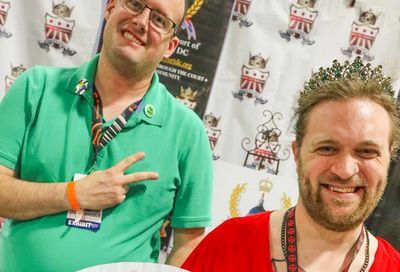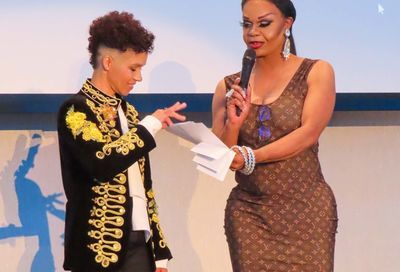The Universe in Us
We are surrounded by social and physical frontiers we can explore, or not
Carl Sagan, host of the original 1980 Cosmos series, said we are made of star stuff, because our atoms were created billions of years ago inside a star. Sagan’s words are echoed by Neil deGrasse Tyson, the director of New York’s Hayden Planetarium who hosts the new Cosmos.
Tyson’s enthusiasm for science is infectious. And he holds his ground. When creationists demanded equal time on Cosmos, he said, “You don’t talk about the spherical Earth with NASA, and then say let’s give equal time to the flat Earthers. Plus, science is not there for you to cherry pick.”
The creation/evolution dispute is one of the fake controversies stoked by fundamentalists who are threatened by intellectual freedom and know nothing about the scientific method. Ignoring the fact that the overwhelming consensus of scientists is against them, they press school boards to “teach the controversy.” They perversely regard science as weak because it lacks their dogmatic and brittle certainty. Tyson counters, “My view is that if your philosophy is not unsettled daily then you are blind to all the universe has to offer.”
Few outside the right-wingers’ hothouse are fooled by their propaganda. In his March 21 Michigan marriage ruling, U.S. District Judge Bernard A. Friedman rejected as “not worthy of serious consideration” widely criticized testimony by junk scientist Mark Regnerus suggesting that children raised by gay parents suffer as a result. Our coming nationwide victory on marriage equality will be another milestone in a long struggle against religious coercion and obscurantism.
The frontier spirit is part of America’s soul. We were born, after all, in revolution. In the long run, fear of change is no match for the power and possibility of discovery. Americans lately have been witnessing gay families’ joy on the steps of courthouses, and they are warming to it.
Years ago, I stood in the Manassas Battlefield on a wintry night to view a comet with my friend and fellow activist Barrett Brick, who died last September. The comet’s tail stretched across half the sky, and the Pleiades star cluster rose behind the bare branches of a tree.
Words fail at such a moment, as when sitting alone in a cathedral, awed by its commanding silence. It reminds us that we are small and the universe is great. The vault of heaven, and its exploration, provokes not emptiness but wonder.
Religious bullies often equate lack of religion with nihilism. Tyson pokes them when he says, “The more I learn about the universe, the less convinced I am that there’s any sort of benevolent force that has anything to do with it, at all.” Barrett, by contrast, often led services at Congregation Bet Mishpachah. But he was no bully. His drashim (Torah lessons) were invariably graceful, erudite and persuasively connected to current challenges.
Faith can be used to inspire rather than control, just as American Exceptionalism can be seen as an obligation to lead and not merely an entitlement to boss. You may prefer neither. Religiosity, like patriotism, lends itself to misuse. But given its gravitational pull, one gains greater leverage by guiding it in a more benign direction than trying to stop it.
Tyson celebrates the cross-pollination of the sciences, and the way discoveries lead to unforeseen benefits decades later. The inventor of the laser, for example, was not thinking of barcode readers. In a similar fashion, the lived reality of social changes can dispel fears, as our fellow citizens at long last recognize the love that makes gay families.
With or without faith, all of us on this “pale blue dot,” as Sagan called Earth, can be uplifted by a recognition that, as Tyson puts it, “We are in the universe and the universe is in us.”
Richard J. Rosendall is a writer and activist. He can be reached at rrosendall@starpower.net.
Support Metro Weekly’s Journalism
These are challenging times for news organizations. And yet it’s crucial we stay active and provide vital resources and information to both our local readers and the world. So won’t you please take a moment and consider supporting Metro Weekly with a membership? For as little as $5 a month, you can help ensure Metro Weekly magazine and MetroWeekly.com remain free, viable resources as we provide the best, most diverse, culturally-resonant LGBTQ coverage in both the D.C. region and around the world. Memberships come with exclusive perks and discounts, your own personal digital delivery of each week’s magazine (and an archive), access to our Member's Lounge when it launches this fall, and exclusive members-only items like Metro Weekly Membership Mugs and Tote Bags! Check out all our membership levels here and please join us today!


















